DT Swiss GR1600 Spline gravel wheelset review
Reliable, robust, and respectably zippy – they’d not be out of place bought as an upgrade or a workhorse.
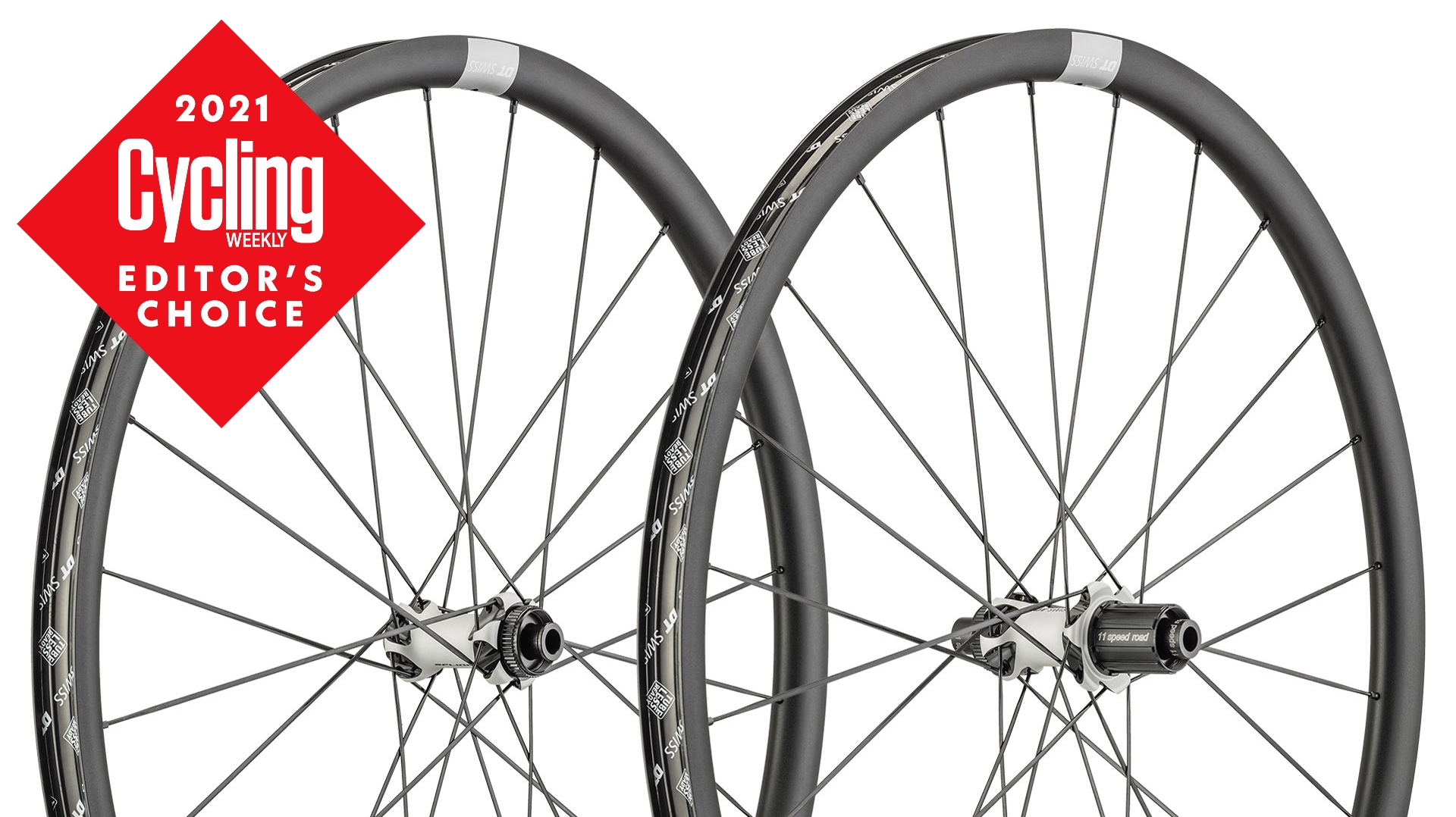
DT Swiss GR1600 Spline wheels are lightweight and robust enough that they can function as either an upgrade over a stock wheelset or as a workhorse that won’t complain about heavy usage. The price isn’t entry level, but then neither is it restrictively high – these are still significantly cheaper than a carbon option.
-
+
Very robust
-
+
Serviceable
-
+
Interchangeable endcaps
-
+
Wide internal rim width
-
-
Stock freehub engagement is 20°
You can trust Cycling Weekly.

The DT Swiss GR1600 Spline gravel wheels are the next up in the line from the entry-level GR1800 Spline. The combination of a reasonable price, robust build and spritely character means this wheelset arguably delivers the best total package in the range.
The construction: DT Swiss GR1600 Spline
Let’s start with the rims and work our way in. The internal rim width is measures 24mm, which is where things are currently settling for gravel bikes. It’s still among the wider profiles and so will better compliment plumper tyres, but it’s not quite at the avant-garde – we are seeing some a little wider still.
The other measurements – a 25mm depth and 28mm external rim width – are relevant on a set of road wheels, with their respective impacts on the aerodynamics, but when riding gravel you don’t tend to spend so much time traveling at those higher speeds and so this aspect is less important.
Naturally, the rims are tubeless ready and come with tape already installed. You’re also giving a couple of tubeless valves, so a few fewer things to worry about when getting the wheels set up for the first time.
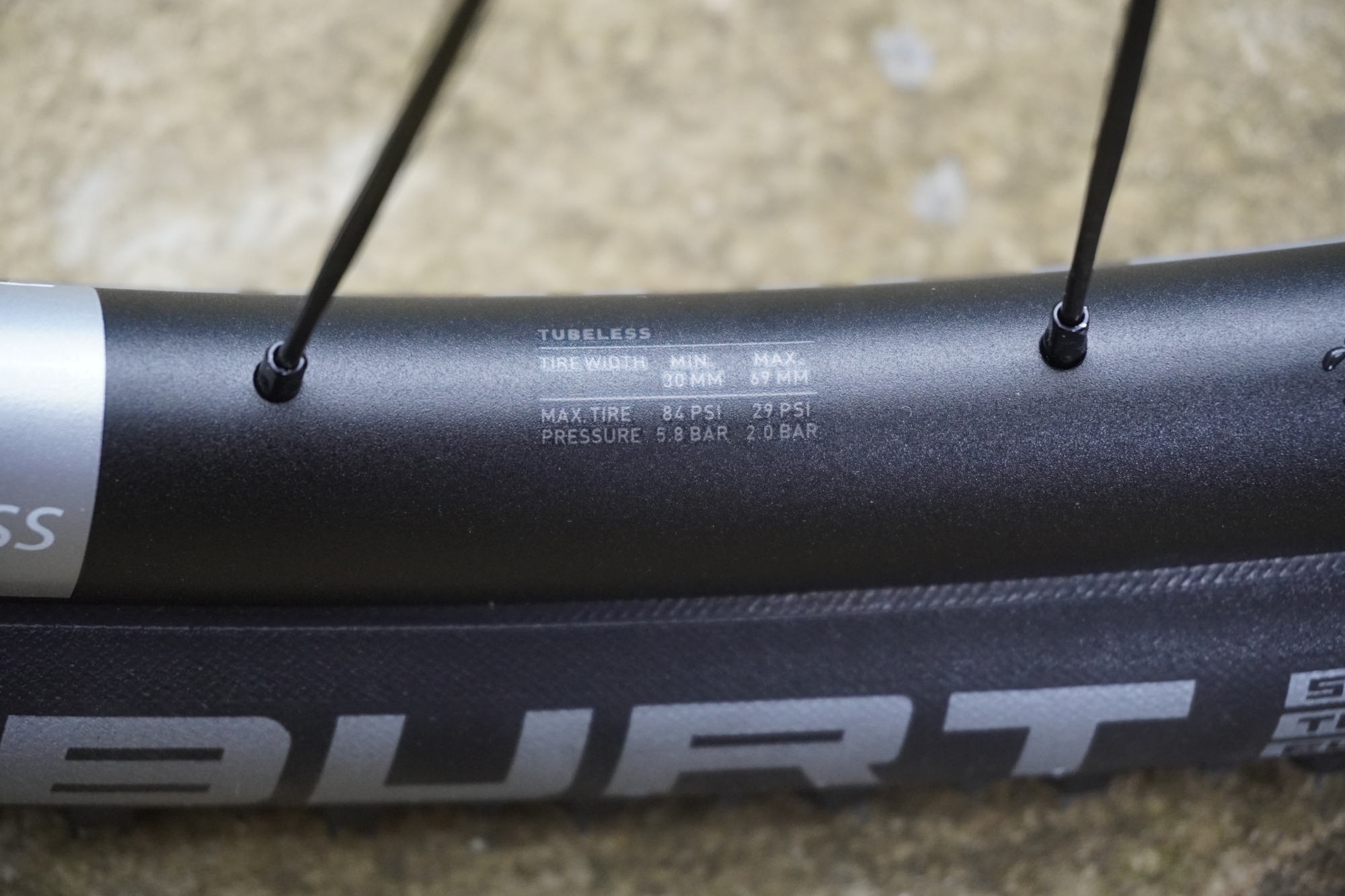
The spoke nipples are aluminium – like the rims – and have been treated with DT Swiss’ “Pro Lock” compound to help prevent the spoke-nipple connection from loosening.
The spokes themselves are the DT aero comp wide straightpull. Of course, their aero qualities are going to be a little wasted here, but there’s a number of features which make these still an advantageous pairing.
Firstly, the extra working of the metal to flatten the spokes tempers and strengths them – always useful – and secondly, straightpull spokes can have a tendency to spin in their sockets when you try and turn the nipple. Being able to actually hold the spoke in place makes adjusting the tension so much easier.
The latest race content, interviews, features, reviews and expert buying guides, direct to your inbox!
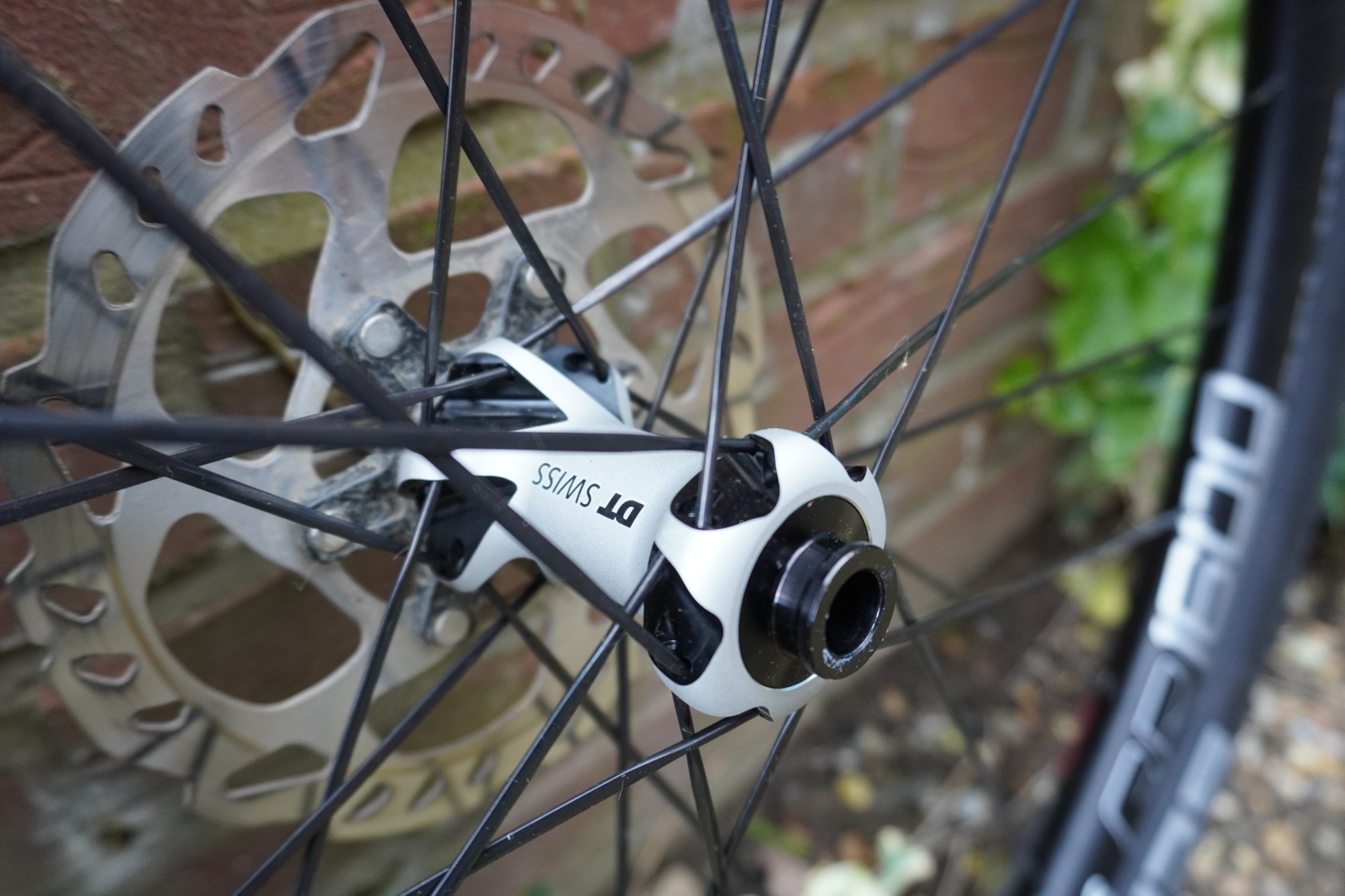
Now to the hubs. These are drilled for 24 spokes and come with adaptors so the front can be set up as 12x100mm, 15x100mm and QR100. The rear, on the other hand, can be switched between 12x142mm and QR142mm. The hubs are designed to take centre lock disc rotors, but six-bolt adaptors are provided as well.
Coming now to the freehub, this is the starkest upgrade over entry-level GR 1800 Spline gravel wheels. Instead of a rachet and pawl setup, here we have DT Swiss’ Star Ratchet system, which uses two interlocking ratchets, greatly increasing the contact surface area.
It’s a design the brand has been using for years and has proven reliability, while also being simple to service (when the time eventually comes). There’s a number of different tooth options, these wheels come with the lowest – 18 – which offers a maximum movement of 20° at the cassette before the freehub engages.
This is quite large compared to other hubs around this level, but the fewer teeth does make it more rugged and reduces friction when coasting.
The ride
650b wheels seem to have lost of a bit of favour recently. New bikes are being released which can handle tyres on 700c rims which are pretty much as wide as you'd use on a 650b wheel. With the tyre width a similar size, the bigger 700c wheels are better able to smooth over rough terrain, offering better control and comfort.
But I think there’s still a place for the 650b wheel size.
Yes, if all you’re doing is monster-cross, essentially-mountain-biking-but-on-curly-handlebars type riding, then 700c wheels and big tyres are going to be the best setup for you.
But if you end up spending part of your time on smoother off-road sections – or have plans for majority on-road bikepacking trips – it's nice to be able to swap between 32 or 35mm wide faster rolling tyres and 53mm (2.1") super capable tyres and actually have the right tool for the job.
The difference in wheel diameter between a 32 and 50mm 700c tyre is pretty huge and as a result can compromise the feeling and handling of the bike. There is still a bit of a difference in diameter between a wide 650b and a narrow 700c setup, but it's much closer and has much less of a noticeable effect on the handling when swapping between.
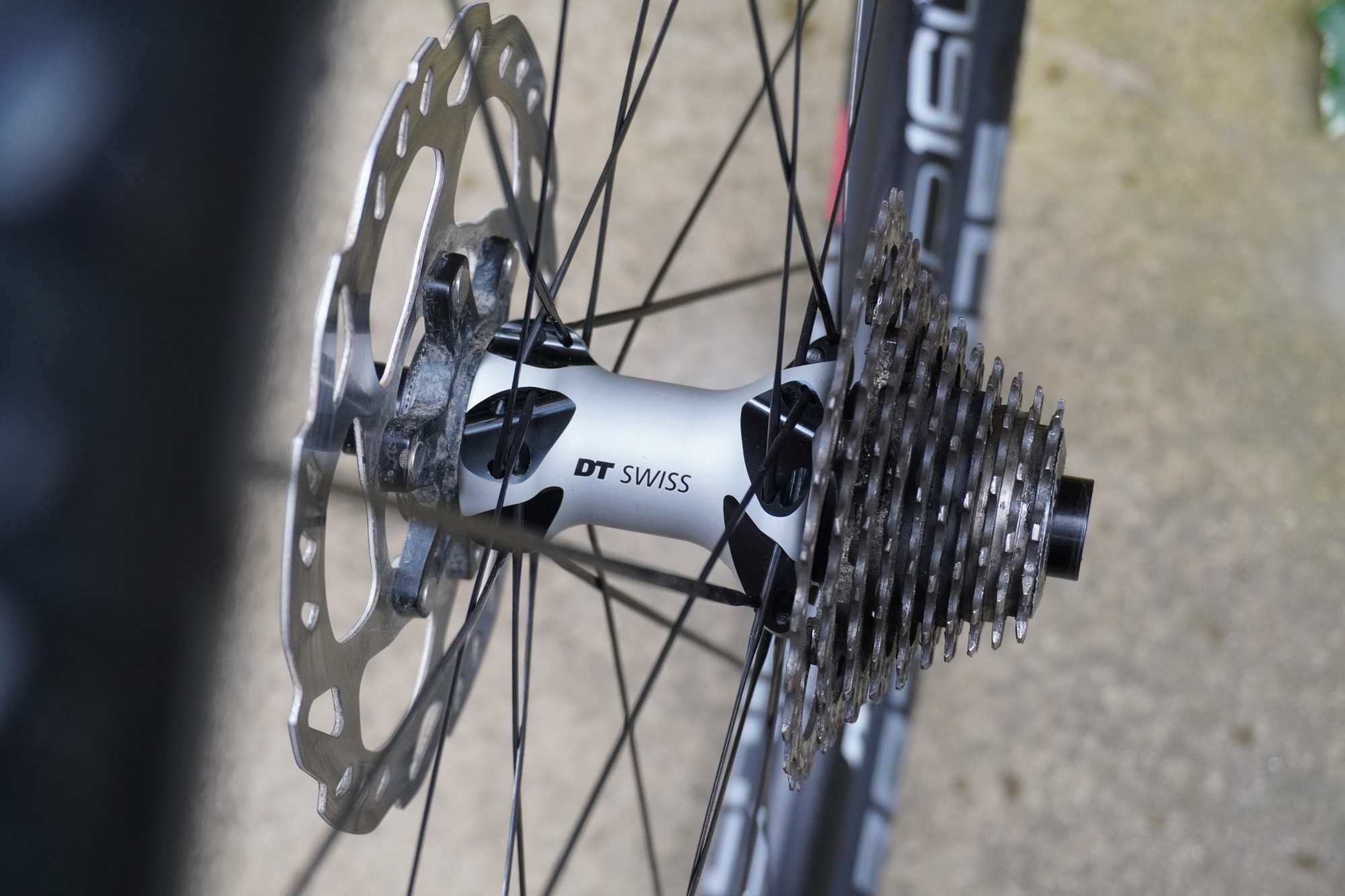
Freehub engagement
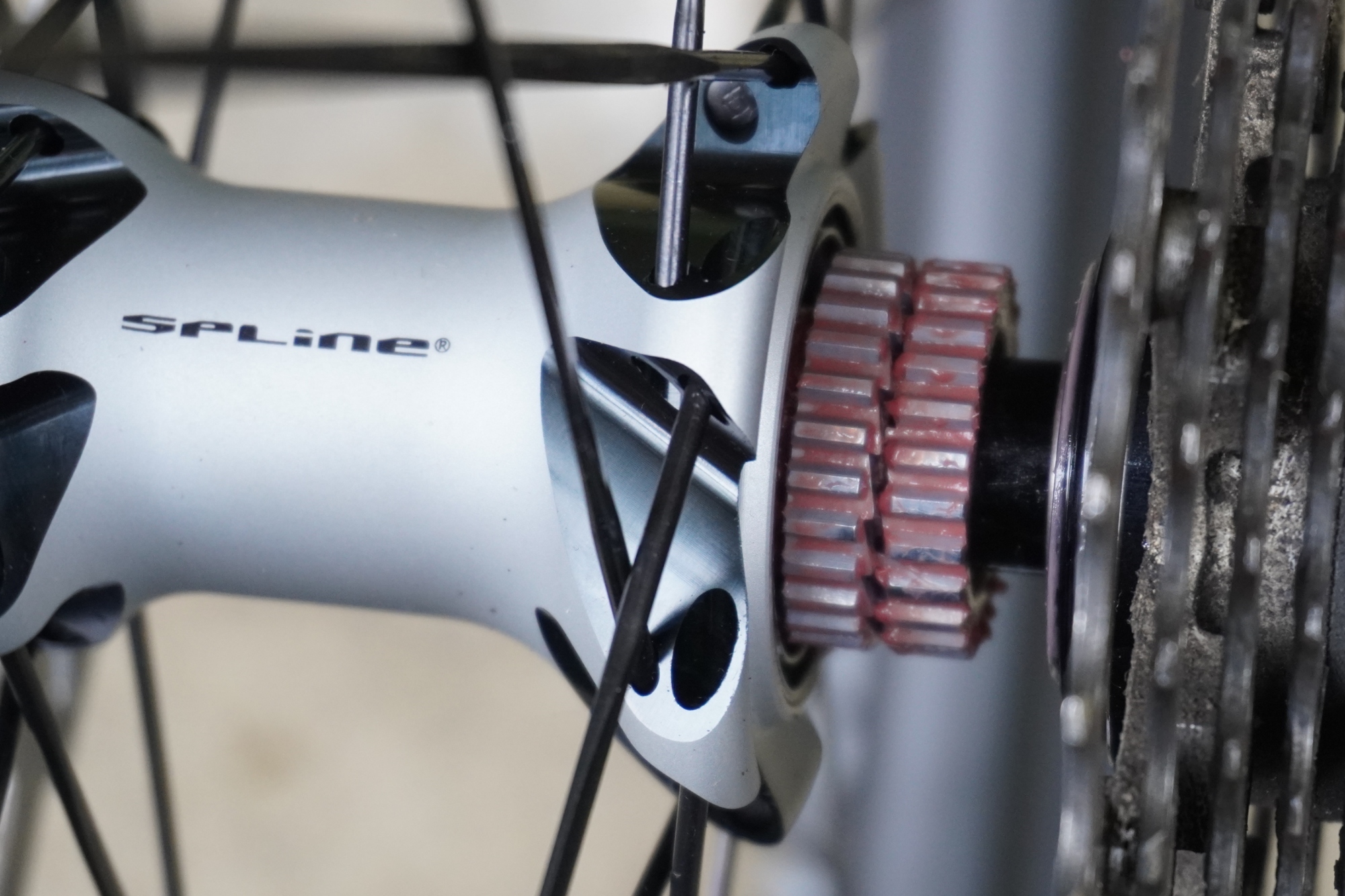
The Star Ratchet freehub system, with its 20° of engagement wasn’t actually especially noticeable for the majority of the riding. On a mountain bike, the speed of the pick-up is a lot more noticeable because the gears are that much smaller, with 30 tooth chainrings commonly paired to largest sprockets of 50 teeth and upwards.
Compare that to a gravel bike, where if a 30 tooth chainring is mounted, it’ll generally only be paired with a largest cassette sprocket of 36 teeth.
This is relevant because the gear you’re in effects just how much crank movement it takes to turn the cassette. In the extreme, when you’re in your biggest gear, it’ll hardly take any movement at the crank to get the cassette to rotate those 20°. Which is why a level of engagement tends to cause me an issue on a mountain bike isn't so much of a problem on a gravel bike.
If you do find it irritating, you can replace the ratchet for one with more teeth. My recommendation would be for the 24t option which delivers an engagement of 15°, which should be completely sufficient for gravel riding, while not sacrificing too much of that durability you get from a system with fewer teeth.
And burly is just how I set up the DT Swiss GR1600 Spline wheels. Getting the 2.1 inch (53mm) Thunder Burt tyres onto the rims didn’t present much of a struggle, only having to use a tyre lever to pop the final portion on. Getting the tyres seated properly wasn’t a struggle either, popping onto the rim with just a track pump and the sealant staying all nicely contained within the tyres with no leaking at the bead.
I wasn’t really expecting any surprises, Schwalbe tyres tend to pair pretty nicely with DT rims, but nice to have that underlined.
Hitting the trails, they felt a little quicker to accelerate and had a bit more urgency to them than you might typically associate with alloy wheels – although naturally not quite as zippy as you get with a step up into carbon.
When it came to the lateral stiffness, though, they were every bit the match of a wheel much more expensive, with no noticeable flex when putting the power down on the climbs. When clattering over rocks and roots, they didn't feel harsh at all – but wrapped in such plump tyres, you'd have to be very finely attuned to get much feedback there.
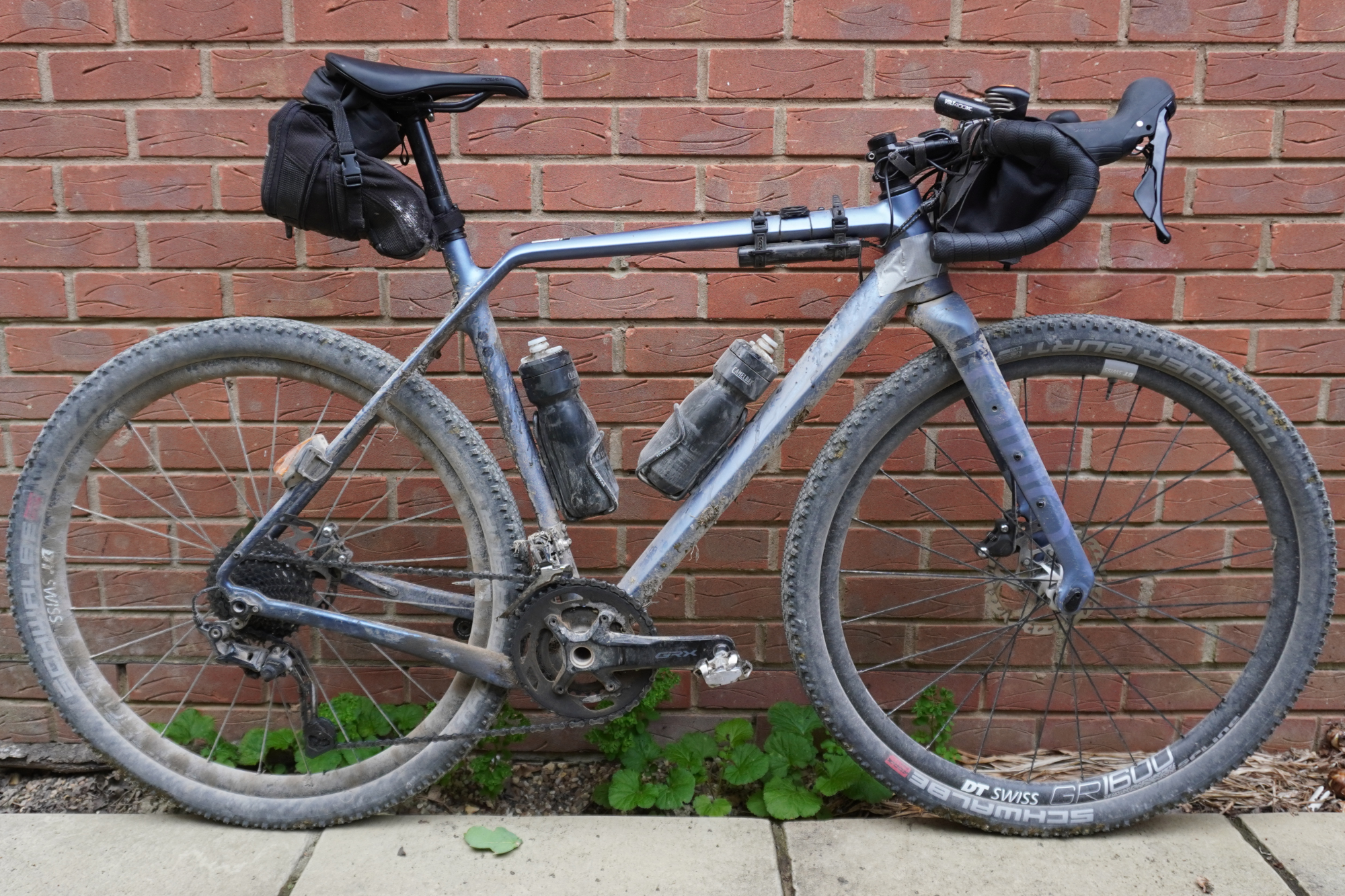
The robustness and durability of these wheels I’m completely assured of, having used them to complete the South Downs double this July. Over 200 miles of flint strewn bridleway between Winchester and Eastbourne, they never faltered once.
Twice on descents I ended up taking a square edged hit with the front wheel. The harsh ‘thunk’ immediately filling me with dread, wondering if I had irremediably dented the rims or cut the tyres. But I needn’t have worried, it turned out that no damage had been caused – a real testament to the strength of the rims.
Beyond actually hitting the rims, just the sustained clattering over the rough chalky surfaces of the Downs can take a huge toll on a set of wheels. On some OEM wheelsets I’ve completed the single on over the years, readjusting the cup-and-cone bearings and getting the rim true again are just part of the post-ride rectification ritual.
But with the GR1600 Spline, they’re still spinning perfectly straight and the sealed-cartridge bearings still turn just as perfectly as when I first unboxed them. That really is most impressive.
Value
At £495, the DT Swiss GR1600 Spline gravel wheels aren’t super cheap, but neither are they overly expensive. To compare them to the offerings from Hunt, the Mason X Hunt 650b Adventure Sport wheels undercut DT Swiss, coming in at £379 and feature a wider internal width of 25mm compared to 24mm.
But on the other hand, those Hunt wheels use J-bend spokes and a traditional pawl system in the freehub, both of which are potentially less robust than the straightpull aero spokes and Star Ratchet system of the DT Swiss wheels – although that’s not to say there’s a large likelihood of having any problems with those components on the Hunt wheels anyway.
The next wheelset up for Hunt is the £849 Hunt 650b Adventure Carbon Disc, which are significantly lighter than the DT Swiss wheels, but then cost a whole lot more too.
| Weight | 1,727g |
| Internal rim width | 24mm |
| External rim width | 28mm |
| Rim depth | 25mm |
| Spokes | 24 (front and rear) |
| Freehub engagement angle | 20° (can be upgraded to 15° or 10°) |
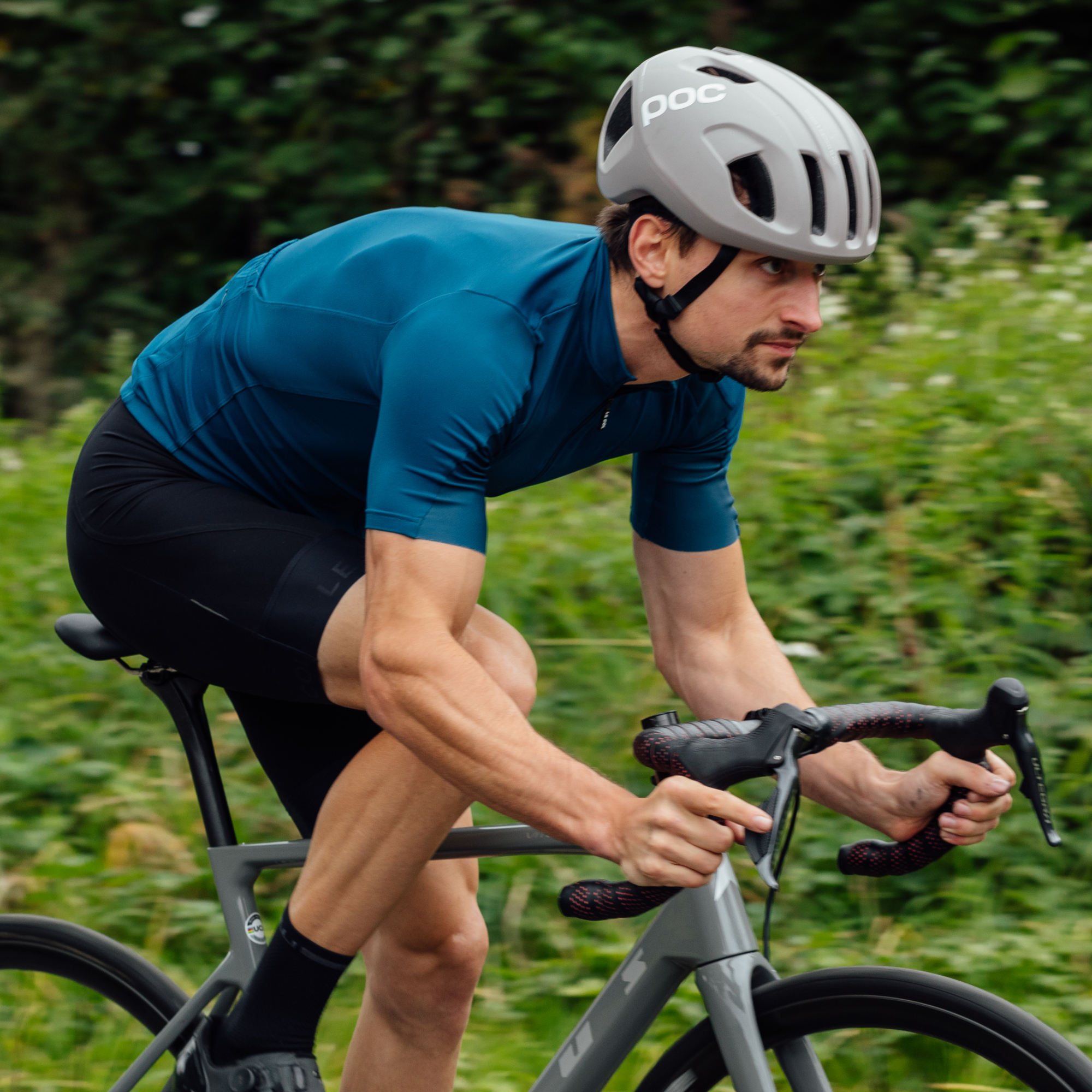
After winning the 2019 National Single-Speed Cross-Country Mountain Biking Championships and claiming the plushie unicorn (true story), Stefan swapped the flat-bars for drop-bars and has never looked back.
Since then, he’s earnt his 2ⁿᵈ cat racing licence in his first season racing as a third, completed the South Downs Double in under 20 hours and Everested in under 12.
But his favourite rides are multiday bikepacking trips, with all the huge amount of cycling tech and long days spent exploring new roads and trails - as well as histories and cultures. Most recently, he’s spent two weeks riding from Budapest into the mountains of Slovakia.
Height: 177cm
Weight: 67–69kg